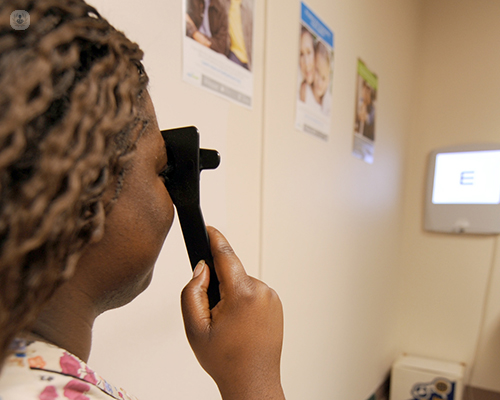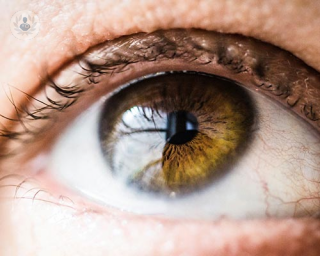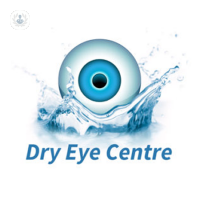Orthoptics
What is orthoptics?
Orthoptics is the study, diagnosis and non-surgical management of patients with symptoms relating to eye misalignment and focusing problems. Hence, orthoptists treat patients whose eyes are not working together properly (i.e. binocular vision). Orthoptists treat adults, children and infants, however, as binocular vision conditions often mostly affect children, most orthoptists work in a paediatric setting.
What conditions does an orthoptist treat?
Conditions that are commonly treated by an orthoptist include:
- Double vision
- Droopy eyelids (ptosis)
- Strabismus (squint)
- Amblyopia (lazy eye)
- Nystagmus (wobbly eyes)
What tests might an orthoptist carry out?
Orthoptist tests are designed to assess eye alignment, movement and binocular vision. Common orthoptist tests include:
- Eye movement tests – these assess the movement of your eyes in different positions.
- Cover test – to diagnose strabismus or misalignment.
- Visual acuity test – tests your vision in each eye.
- Stereopsis tests – assesses your 3D vision and your ability to perceive depth.
What treatments does an orthoptist provide?
Common treatments or tools used by an orthoptist to treat orthoptic conditions include optical devices (e.g. patches or lenses) and specialised orthoptic exercises. Certain conditions diagnosed by an orthoptist may be referred to an ophthalmologist for surgical treatment.








